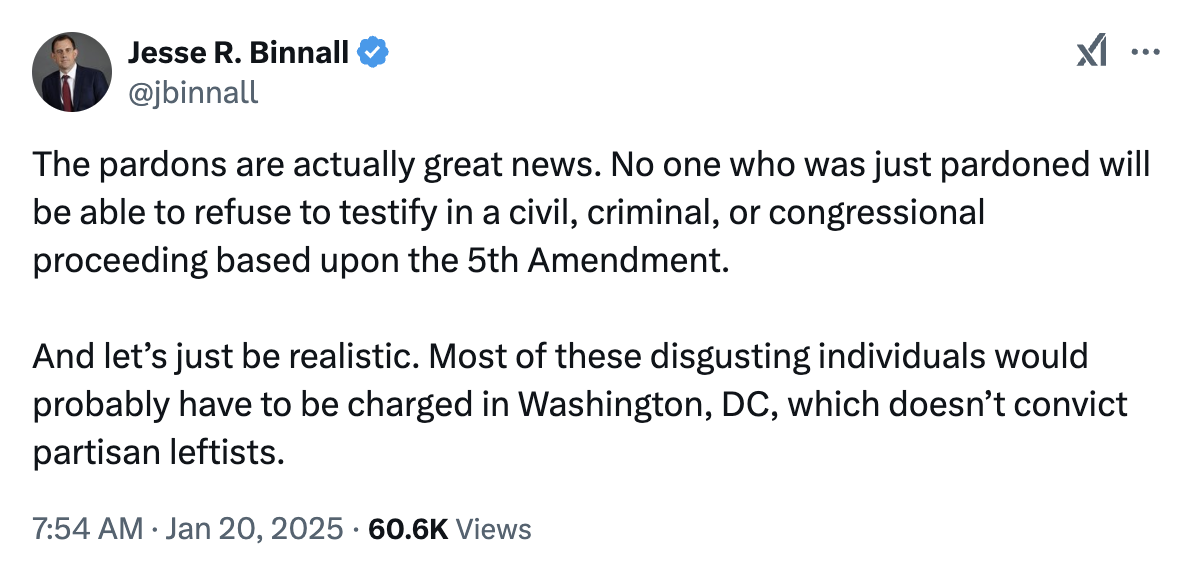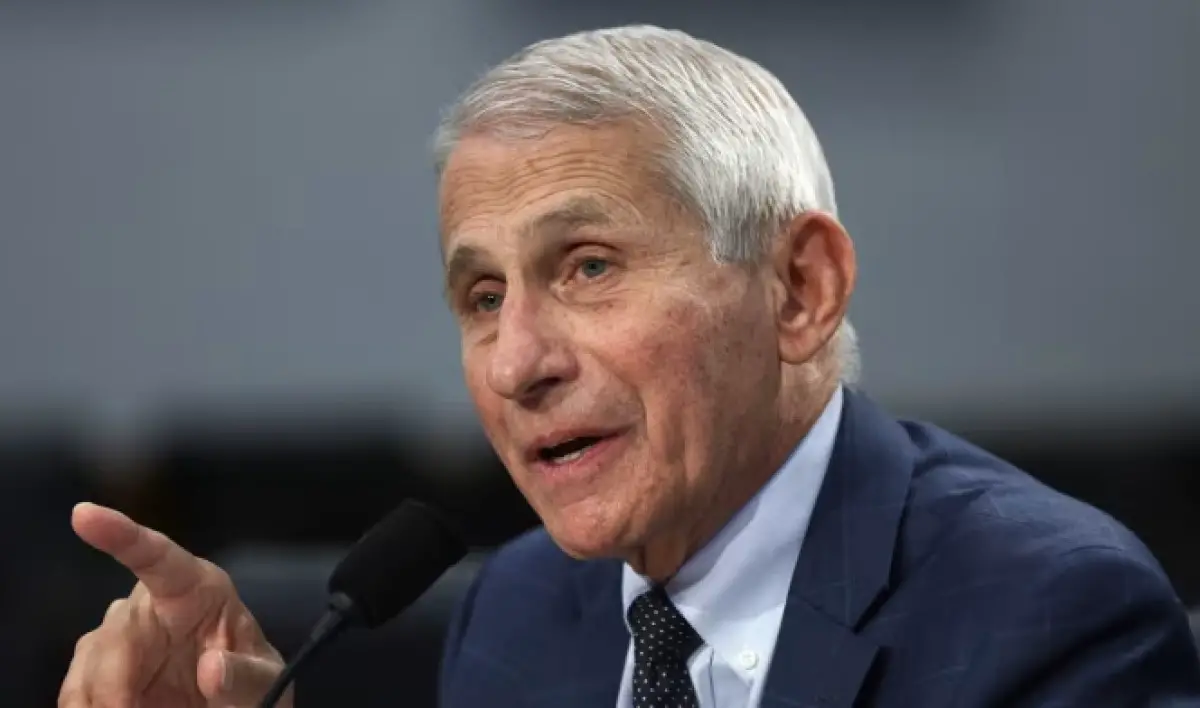As Republicans prepare to take leadership roles in the U.S. House and Senate, the pardons might do little to prevent Cheney, Fauci, or other prominent figures from facing tough questions in congressional hearings. With investigations into the Biden administration’s policies and actions potentially on the horizon, the pardoned individuals could find themselves on a witness list sooner than expected.
Understanding the Implications of Pardons
Presidential pardons have always carried significant weight in the legal system, offering individuals a clean slate from specific convictions or charges. However, a pardon is not a blanket protection. While it absolves individuals of certain legal liabilities, it also removes their ability to invoke the Fifth Amendment to avoid self-incrimination during testimony.
Jesse Binnall, a federal litigation attorney, was quick to point this out. In a statement on social media, he explained that Biden’s pardons could inadvertently pave the way for more scrutiny. “The pardons are actually great news,” Binnall wrote. “No one who was just pardoned will be able to refuse to testify in a civil, criminal, or congressional proceeding based upon the Fifth Amendment.”
This means that figures like Liz Cheney and Dr. Fauci may be compelled to answer tough questions if subpoenaed. For Cheney, this could include inquiries about her role on the January 6th committee, while Fauci might be questioned about his handling of pandemic-related policies and his interactions with former President Trump’s administration.

The Political Backdrop
The timing of the pardons raises questions about their intent. Critics argue that Biden’s move was an attempt to shield key figures from “politically motivated” investigations, as the president himself suggested in a statement.
“I believe in the rule of law, and I am optimistic that the strength of our legal institutions will ultimately prevail over politics,” Biden said. He went on to defend the decision, stating, “Even when individuals have done nothing wrong — and in fact have done the right thing — and will ultimately be exonerated, the mere fact of being investigated or prosecuted can irreparably damage reputations and finances.”
The pardons, however, have fueled speculation about whether they are a preemptive strategy to prevent Republicans from using congressional committees to investigate figures associated with Biden’s administration.
Dr. Fauci’s Potential Testimony
Dr. Anthony Fauci, the nation’s leading infectious disease expert during the pandemic, has faced his fair share of criticism. While praised by some for his efforts to guide the nation through an unprecedented crisis, others have accused him of undermining the Trump administration’s pandemic response.
During the summer of 2020, Fauci openly contradicted Trump’s public statements about the coronavirus, calling some of them “not helpful” to the goal of flattening the curve. These remarks, coupled with Fauci’s evolving guidance on masks and lockdowns, have made him a controversial figure in political circles.
Should Republicans decide to revisit pandemic-related policies, Fauci could be called upon to provide clarity on his decision-making process and his role in shaping public health messaging during a politically charged time.
Liz Cheney’s Role Under Scrutiny
Liz Cheney, a vocal critic of former President Trump and a key member of the January 6th committee, is another high-profile recipient of Biden’s pardons. While Cheney’s actions have garnered praise from those who oppose Trump, they have also drawn ire from his supporters, who accuse her of bias and partisanship.
If subpoenaed, Cheney could face questions about the committee’s handling of evidence and whether any actions were taken to suppress information favorable to Trump or pressure witnesses. Such inquiries would undoubtedly bring her role in the January 6th investigation back into the spotlight.
A Double-Edged Sword
While the pardons may shield individuals from specific legal repercussions, they come with a cost. Accepting a pardon can often carry an implicit admission of guilt in the court of public opinion. Former Representative Adam Kinzinger, a Republican who also opposed Trump, expressed this sentiment.
“As soon as you take a pardon, it looks like you are guilty of something,” Kinzinger told CNN.
This perception could complicate matters for Cheney, Fauci, and others, especially if they are required to testify publicly under oath.
What Lies Ahead
As the political landscape continues to shift, the impact of Biden’s pardons remains to be seen. For now, they serve as a reminder of the delicate balance between the rule of law and political strategy.
Republican leaders like Representatives Jim Jordan and James Comer have hinted at their intention to use committee powers to investigate various aspects of the Biden administration. Whether these pardons will ultimately protect their recipients or lead to further scrutiny is a question that only time will answer.
For Cheney, Fauci, and others, one thing is clear: the pardons may have spared them immediate legal troubles, but they are far from free of accountability.

